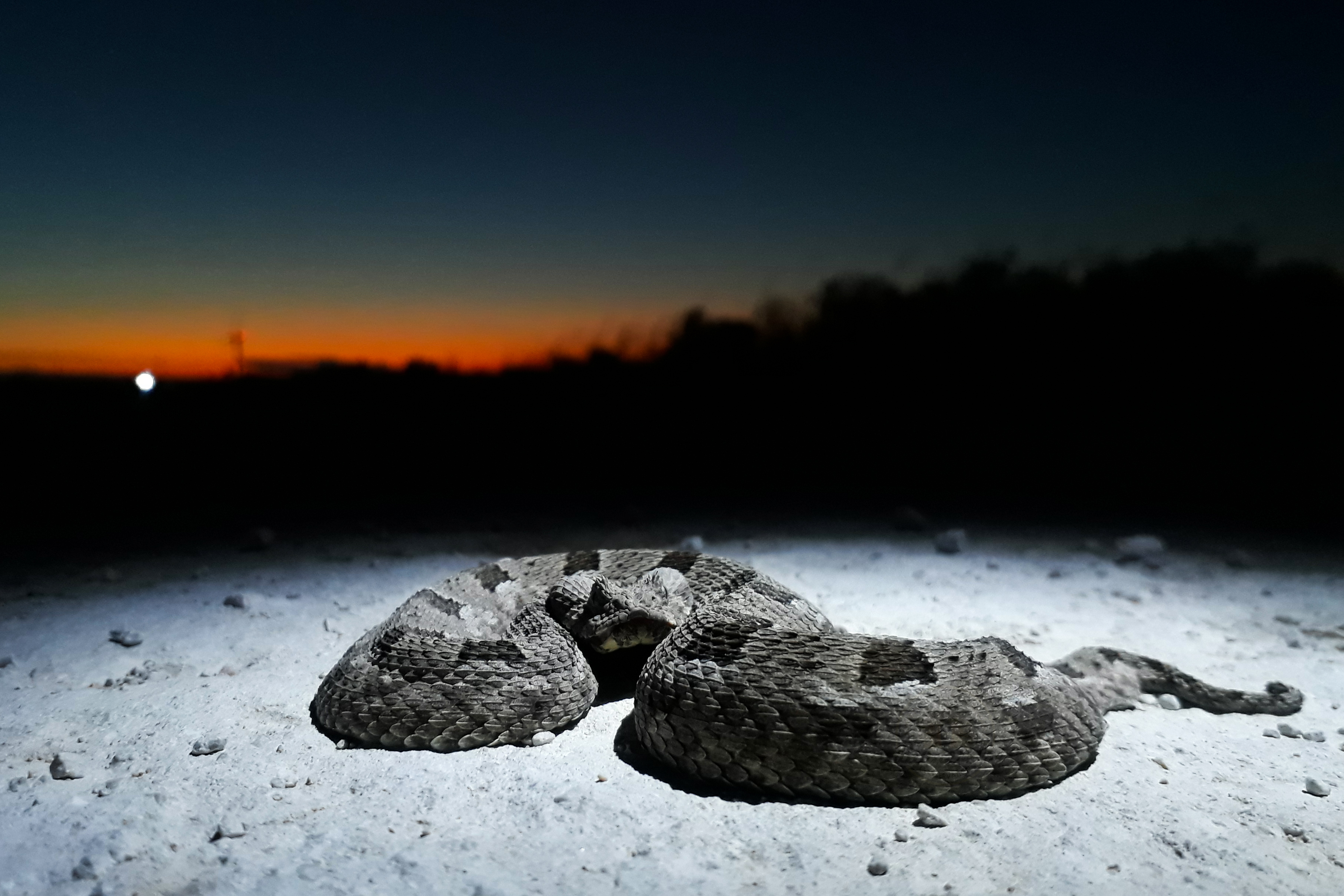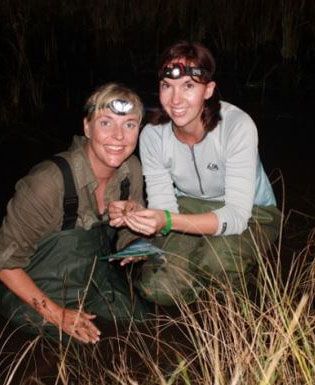International Women’s Day 2020: Jeanne Tarrant


Averting extinction of the Albany adder in South Africa
Albany adders are one of the world’s rarest snakes. Their only known location is under threat from opencast mining, wind turbine and road developments. Jeanne runs long term projects to save this species and others from extinction.
How did you come to lead your conservation team?
I started the Endangered Wildlife Trust’s Threatened Amphibian Programme in 2012 and I run one of the youngest programmes in the organisation. I have been responsible for growing the programme since its inception. From my programme’s modest beginnings, I am now responsible for five projects across the country and a staff complement of seven. The Albany Adder project is my first one to include a threatened reptile species and we are working with the Bionerds to carry out this critical work on one of South Africa’s most threatened snakes.
What has been your biggest challenge so far?
Starting a new programme with a focus on frog conservation from scratch was challenging, but also very rewarding. It has been difficult to raise the funds to keep the programme sustainable, but has also been wonderful to see how public attitudes and donor support has increased in recognition of these animals that may not always been very popular.
What has been your biggest achievement in the field in the past year?
My long-term work in the Eastern Cape is resulting in the declaration of the first and only formal protected area for the Critically Endangered Amathole Toad. Here I collaborated closely with both the land-owners and the Eastern Cape Parks and Tourism Agency (ECPTA), towards declaring the 1,129 ha Elandsberg Nature Reserve. This represents the only formally protected area where the Amathole Toad is known to occur ¬– the species does not occur in any existing PA. This is exactly the approach we plan to use for the Albany Adder. Similarly, using the Stewardship model in KwaZulu-Natal, my programme is working with traditional leaders in a communal land area (Adams Mission) to declare 500 hectares of unique coastal wetland and swamp forest habitat where the Endangered Pickersgill’s Reed Frog and Kloof Frog occur sympatrically. This is the only such species-specific protection work taking place on traditional authority land in South Africa currently, and as such the approach to stakeholder engagement is proving vital. I am also very excited to announce that I have been short-listed for this year’s Whitley Award!
What would you say to aspiring women who want a future in conservation?
Being a woman should be seen as an advantage in the field of conservation. Our natural empathy is a very beneficial characteristic in also caring for the planet. Be passionate and follow your dreams – there is plenty of opportunity to work in conservation.
